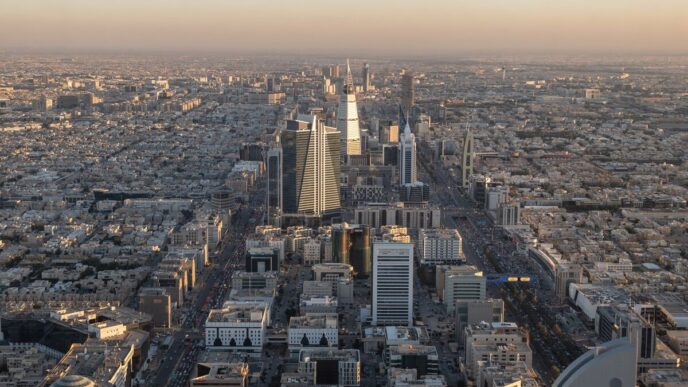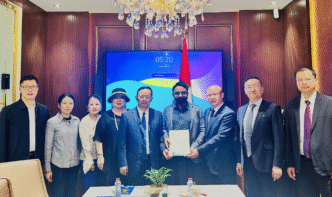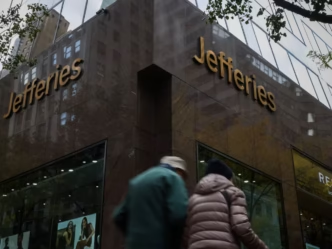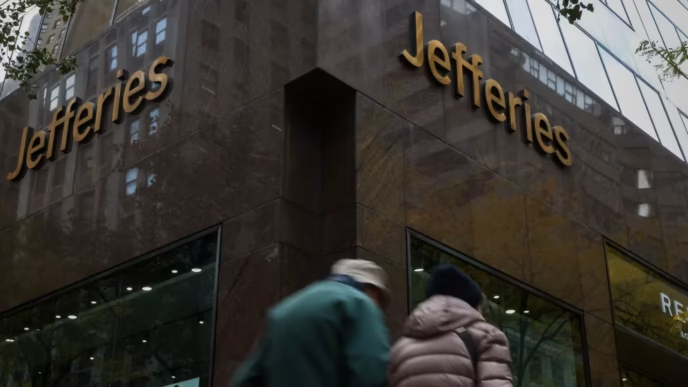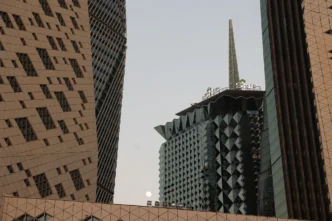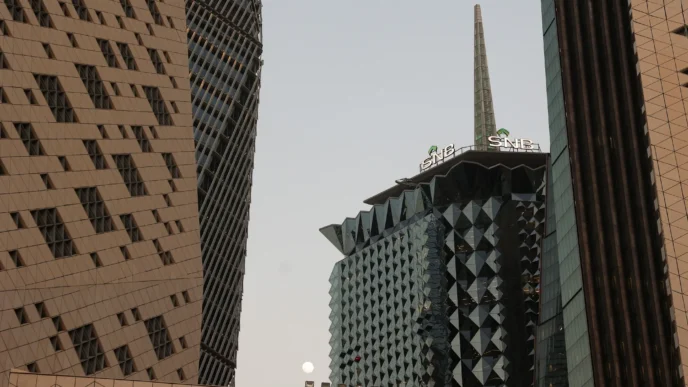A New Specialized Investment Power from the Gulf
Emerging from the shadows of Abu Dhabi’s sovereign-wealth machinery, Lunate is making waves. In little more than two years, Lunate has committed around US $13.5 billion in deals, signalling an aggressive drive to become a global alternative-investment powerhouse. With roughly US $110 billion in assets under management, the Abu Dhabi-based firm is pushing hard to extend its reach into private markets, hedge funds, logistics, climate and thematic investment spaces.
As Abu Dhabi pivotally repositions itself as a “capital of capital”, Lunate is emerging both as a strategic vehicle for the emirate and a contender on the global stage. This article explores how Lunate got here, what it has done with the US $13.5 billion so far, and where it is headed next.
Lunate’s Origins and Strategic Mandate
Founded in 2023 under the aegis of Abu Dhabi’s investment ecosystem, Lunate was conceived as a dedicated alternative-investment platform targeting global private markets. It is affiliated with the network of investment vehicles overseen by Tahnoun bin Zayed Al Nahyan, the UAE’s National Security Adviser, who chairs one of the main Abu Dhabi investment firms.
From its launch, the firm has outlined a multi-asset-class mandate:
- Private equity buyouts
- Growth and venture capital
- Private credit and mezzanine debt
- Real assets (infrastructure, logistics, energy)
- Public equity and debt opportunistically
- Thematic vehicles (climate, AI, data infrastructure)
Because of this diversified and global ambition, Lunate’s allocation and deal-activity metrics are now drawing scrutiny by investors, fund-managers and regional competitors alike.
What the US $13.5 Billion Represents (and What It Contains)
While the headline number of US $13.5 billion encapsulates ongoing commitments and announced deals, breaking it down gives insight into Lunate’s strategy and direction:
Major transactions and partnerships to date
- A US $2 billion commitment to a strategic-investment platform with hedge-fund manager Brevan Howard, marking Lunate’s entry into the hedge-fund arena.
- A sizeable joint venture with Blackstone to create a US $5 billion logistics infrastructure platform across the Gulf Cooperation Council (GCC) region.
- A US $1 billion anchor commitment to a new platform launched with HPS Investment Partners focused on private markets in North America and Europe, including flexible equity and debt solutions.
- Real-asset deals in the UAE and region: e.g., the acquisition of nearly one-quarter stakes in major commercial real-estate assets in Dubai.
- Thematic investment vehicles such as an ETF focused on AI, data, power & infrastructure launched by Lunate themselves.
- Numerous fund commitments and co-investments across funds and boutique managers globally.
Sector and regional tilts
- A strong tilt toward private markets and real assets, not simply passive public index investing.
- A regional base in Abu Dhabi, but global investment reach—particularly in the U.S., Europe and Asia-Pacific.
- Strategic alignment with Abu Dhabi’s broader goals: logistics infrastructure, climate investment, technology deployment, and regional diversification away from hydrocarbons.
Timing and scale
What is striking is the pace: committing over US $10 billion in just over two years is rare for a nascent firm. It reflects both the deep financial resources available and Abu Dhabi’s strategic will to scale.
Why Lunate’s Aggressive Pace Matters
For Abu Dhabi
- The emirate is positioning itself as a global hub for private capital—Lunate provides a locally headquartered “national champion” that can compete globally.
- By deploying outside the oil/gas sector, Abu Dhabi is building non-hydrocarbon value, aligning with its diversification and Vision 2030-style ambitions.
- Partnerships with leading global managers bring expertise into the UAE capital, fostering ecosystem development.
For Global Investors and Managers
- Lunate offers potentially large co-investment capacity, especially attractive for large deals and infrastructure platforms in the Middle East region.
- Managers seeking Middle-East anchor capital may find in Lunate a partner willing to commit large cheque sizes and act globally.
- The firm’s activity is a signal of increasing competition for institutional-size deals from Gulf-region backers.
For the Alternative-Investment Landscape
- Gulf capital is being deployed not just passively but in structured platforms and co-investment vehicles, raising the bar for deal size and speed.
- Real-asset platforms (logistics, data-centres, infrastructure) are becoming increasingly globalised with Middle-East-funded parties.
What’s Next: Lunate’s Roadmap and Strategic Priorities
Looking ahead, several themes and objectives will define Lunate’s next phase:
1. Scaling into new asset classes and geographies
Expect further expansion into Asia-Pacific, deeper exposure to growth-equity/venture, more credit and structured-capital vehicles, and co-investment platforms in emergent sectors (e.g., quantum computing, climate tech).
2. Building in-house capabilities and regional leadership
While currently partnering with major global managers, Lunate’s ambition likely includes building proprietary investment platforms, internal capability in sectors such as climate, “deep tech”, infrastructure, and thematic ETFs.
3. Strategic capital allocation discipline
With large commitments already made, Lunate will face increased scrutiny on returns, vintage timing, exposures, and risk management. The firm must demonstrate performance—not just ambition.
4. Further integration with Abu Dhabi’s ecosystem
Because Lunate is part of a broader Abu Dhabi investment network, future deals may increasingly align with national strategic sectors: logistics hubs, aviation, renewable energy, rare earths/minerals, regional manufacturing.
5. Investor relations and global branding
To attract third-party capital (family offices, pensions, sovereign wealth funds), Lunate must build credibility: transparency, governance, track record. As the firm grows, global branding and operational sophistication will matter more.
Challenges and Risks to Watch
No strategy of this size is without vulnerabilities. Key risks for Lunate include:
- Execution risk: Rapid deal-making raises risks of committing to assets prematurely, facing integration issues or macro headwinds.
- Valuation risk: Real-asset and private-market valuations globally are under pressure; timing mismatches can hurt performance.
- Governance and independence: Because of its close ties to Abu Dhabi sovereign networks and large state-backing, perceptions of independence, conflict-of-interest or alignment may impact LP sentiment.
- Concentration risk: Large bet sizes and clustered geographies (Middle East + select Western markets) could pose concentration issues if regional/regulatory shocks occur.
- Global macro risks: Rising interest rates, inflation, geopolitical friction (e.g., U.S.–China, Middle East tensions), and commodity cycles could affect underlying asset returns.
- Fund-manager competition: Global alternatives are crowded; securing unique deal flow, attractively priced assets, and differentiation will become harder.
Conclusion: Lunate at a Pivot Point
Abu Dhabi’s Lunate has moved from inception to global actor in investment management at an extraordinary pace—US $13.5 billion in commitments and counting. The firm’s ambition aligns closely with broader state strategy: diversify the economy, wield global capital, and create a new financial-investment ecosystem anchored in the Gulf.
Yet the real test is just beginning. Ambitious deals must translate into consistent returns; scale must be paired with governance; regional advantage must convert into global relevance. If Lunate succeeds, it may well become a template for how sovereign-capital-rich states build global investment powerhouses.
For now, the spotlight is on Abu Dhabi—and its high-stakes bet to become not just a capital of oil, but a capital of capital.








